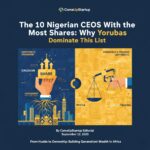Outlasting the 99%: Founder Endurance and the Startup Growth Mindset
The Hidden Truth About Success
Most people don’t fail because they lack talent, resources, or even ideas. They fail because they quit too early. In the world of startups, this truth is magnified: you’re not only competing with market forces, you’re competing against time, uncertainty, and your own doubts.
The secret is rarely about being the smartest or the most well-funded. It’s about being the one who lasts long enough to see what others never will.
Breakthroughs in business—whether it’s landing your first customer, raising your first round, or finding product-market fit—almost never come after the first or second attempt. They come when everyone else has already given up.
Why Endurance Beats Talent in Startups
It’s tempting to believe that startups succeed because of “brilliant founders” or “perfect timing.” While those help, most of the time, it’s endurance that tips the scale.
- Talent won’t guarantee persistence. You can be talented, but if you quit too soon, talent never compounds.
- Knowledge doesn’t beat setbacks. You might know the market, but setbacks are inevitable—knowledge without grit fades fast.
- Resources run out. Even if you start with capital, it’s the ability to adapt and stretch resources that keeps you alive.
In startup ecosystems, survival bias means we mostly hear about the winners. What we don’t see are the thousands who quit just before the curve started to bend upward.
Endurance is the X-factor that separates those who get lucky from those who create their own luck.
The “Outlast” Mindset
If you want to play the founder game, you need what I call the Outlast Mindset—a deliberate commitment to stay in the arena longer than 99% of others.
Here’s what it looks like in practice:
- Expect setbacks, don’t fear them. Every failed experiment is tuition you pay for future clarity.
- Shift from speed to stamina. The best founders aren’t the fastest sprinters; they’re the marathoners who pace themselves.
- Redefine quitting. You don’t quit the game—you only quit approaches that don’t work. Pivoting ≠ quitting.
- Celebrate staying power. Every extra month of survival gives you more chances to stumble into the right connection, the right feature, or the right investor.
Your job isn’t just to start strong. It’s to remain standing long enough for the compounding effect of effort to kick in.
Historical Proof: Those Who Lasted Won
Think about the biggest companies we admire today. Almost all of them looked like failures at the beginning.
- Airbnb struggled for years—selling cereal boxes during the 2008 U.S. election just to stay alive. Most people would have quit, but endurance kept them in the game until investors finally noticed.
- Slack started as a failed gaming company. Instead of shutting down, they pivoted into a workplace chat tool—and the rest is history.
- Pinterest spent years with low traction. Early adopters trickled in slowly, but the founders kept iterating when most would have moved on.
What these stories show is simple: staying longer than the average founder isn’t glamorous, but it compounds. Endurance creates optionality—you live to fight another day, and eventually, one of those days becomes your breakthrough.
Why Most People Tap Out Early
If endurance is so powerful, why do most quit? Because staying the course is brutally hard.
- Emotional fatigue. Rejection, failed launches, and investor no’s take a toll.
- Comparison traps. Founders see peers “succeeding faster” and assume they’re behind.
- Resource pressure. Money runs low, and survival feels impossible.
- Lack of long-term perspective. They expect big wins early, and when it doesn’t come, they stop believing.
The irony? Most breakthroughs happen just after this breaking point. When founders push past the urge to quit, they often find a creative solution, a surprising customer, or a small signal that changes everything.
How to Train for Founder Endurance
Endurance is not just an attitude—it’s a skill you can train. Here’s how:
1. Build Emotional Stamina
- Practice reframing failure: “This didn’t work” ≠ “I am a failure.”
- Surround yourself with people who believe in the long game.
- Journal your small wins so you don’t lose sight of progress.
2. Manage Resources Like a Marathoner
- Stretch your runway by cutting burn before it’s critical.
- Think in experiments: small bets, rapid testing, low-cost validation.
- Keep backup options for funding—consulting gigs, grants, or strategic partnerships.
3. Adopt the 10-Year Lens
Ask yourself: “If I worked on this for 10 years, what could it become?”
This perspective shifts you from “fast exit” thinking to “lasting impact” thinking.
4. Systematize Recovery
Burnout kills more founders than market failure. Treat rest as a strategic investment. Schedule recovery like you schedule sprints.
5. Normalize Pivoting
Endurance isn’t about stubbornly sticking to the wrong thing—it’s about refusing to quit the mission. Be flexible with tactics, but relentless about the vision.
The Compounding Effect of Not Quitting
Here’s the kicker: every day you don’t quit, you stack unseen advantages.
- More conversations → more chances at a lucky intro.
- More iterations → higher probability of hitting product-market fit.
- More resilience → better ability to navigate investor skepticism.
- More time in the market → deeper trust from users.
Quitting resets you to zero. Staying builds compounding momentum.
The Founder’s Edge in 2025 and Beyond
In today’s noisy AI-driven startup ecosystem, endurance is becoming rarer. Everyone is chasing “fast exits” and overnight virality. That’s why endurance will be your competitive edge.
Founders who embrace the Outlast Mindset will:
- Survive hype cycles that crush competitors.
- Turn downturns into advantages by being the last one standing.
- Build trust with investors who value resilience over hype.
AI may accelerate product building, but human endurance remains the ultimate differentiator.
Final Takeaway
Success is less about the brilliance of your first idea and more about whether you can endure long enough to refine, pivot, and seize opportunities others quit before reaching.
If you’re building something today, train yourself to last longer than everyone else. Not because it’s glamorous—but because breakthroughs belong to the few who stay in the arena long enough to find them.
Outlast. That’s the real startup strategy.





Leave a Reply